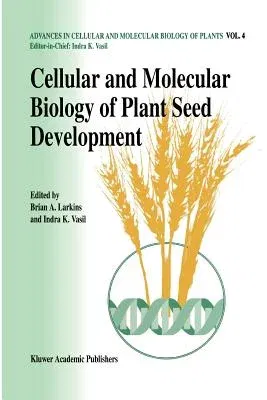Cellular and Molecular Biology of Plant Seed DevelopmentPaperback, 6 December 2010

Qty
1
Turbo
Ships in 2 - 3 days
In Stock
Free Delivery
Cash on Delivery
15 Days
Free Returns
Secure Checkout
Part of Series
Advances in Cellular and Molecular Biology of Plants
Print Length
650 pages
Language
English
Publisher
Springer
Date Published
6 Dec 2010
ISBN-10
9048148782
ISBN-13
9789048148783
Description
Product Details
Book Format:
Paperback
Country of Origin:
NL
Date Published:
6 December 2010
Dimensions:
23.39 x
15.6 x
3.38 cm
ISBN-10:
9048148782
ISBN-13:
9789048148783
Language:
English
Location:
Dordrecht
Pages:
650
Publisher:
Weight:
911.72 gm

